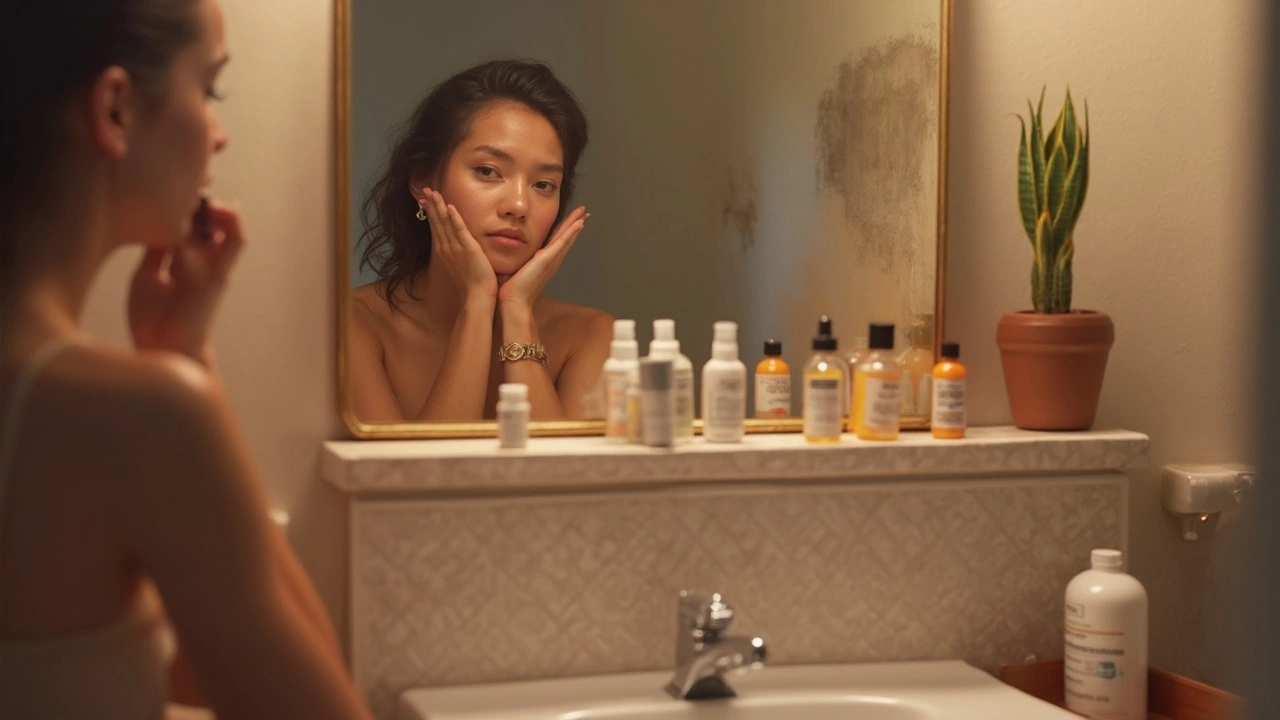Acne Treatments: Practical Options That Actually Work
Acne affects up to 85% of people between ages 12 and 24, but that doesn't mean you have to suffer through it. Whether you have a few annoying pimples or painful cysts, the right approach depends on how bad it is, your skin type, and what you can tolerate. Here’s a clear, no-fluff look at what works and what to try first.
Topical treatments you can try today
Start simple. For mild acne, over-the-counter options often do the trick. Benzoyl peroxide kills acne bacteria and reduces oil. Use a 2.5–5% formula to limit irritation. Salicylic acid helps unclog pores—great for blackheads and whiteheads. Topical retinoids (adapalene or tretinoin) change how skin cells turn over and prevent new breakouts. Apply retinoids at night and benzoyl peroxide in the morning to avoid mixing irritants.
If OTC options aren’t enough, your doctor can prescribe stronger topical retinoids or combination creams that pair a retinoid with an antibiotic or benzoyl peroxide. Always patch-test a new product and ramp up use slowly—start every other night, then increase as your skin tolerates it.
When to consider pills, hormones, or procedures
For moderate to severe acne, oral options can help. Doxycycline (Vibramycin) and other oral antibiotics lower inflammation and bacterial levels; use them short-term to avoid resistance. If cystic acne won’t budge, isotretinoin (Accutane/Isotroin) is the most powerful option—but it has serious side effects and needs close monitoring. If you’re worried about isotretinoin, check out safer alternatives and guided switching strategies discussed in our "10 Alternatives to Isotroin" article.
Hormonal treatments work well for many women. Birth control pills that lower androgen levels and spironolactone can shrink oil production and clear breakouts. Talk to your prescriber about risks, monitoring, and what fits your life.
Procedures like blue light, chemical peels, or microneedling can help stubborn acne and scarring. These work best in combination with medical treatments rather than alone.
Practical tips you can use today: don’t over-wash—twice a day is enough; use a gentle cleanser; always wear sunscreen when using retinoids or acids; and avoid picking or popping pimples to reduce scarring. A low-glycemic diet and cutting back on dairy can help some people, but results vary.
Want more detail? We have guides on safe online purchases for doxycycline, metronidazole substitutes for topical infections, and alternatives to isotretinoin. If your acne is persistent or scarring, see a dermatologist—getting the right plan early saves time and skin.

